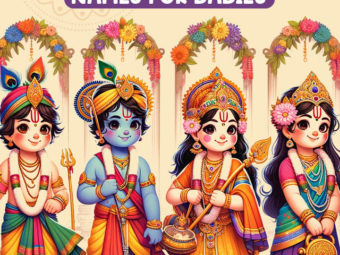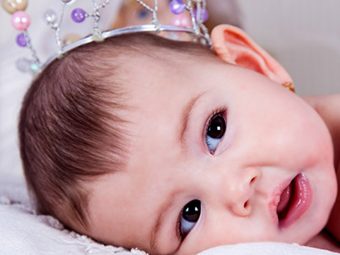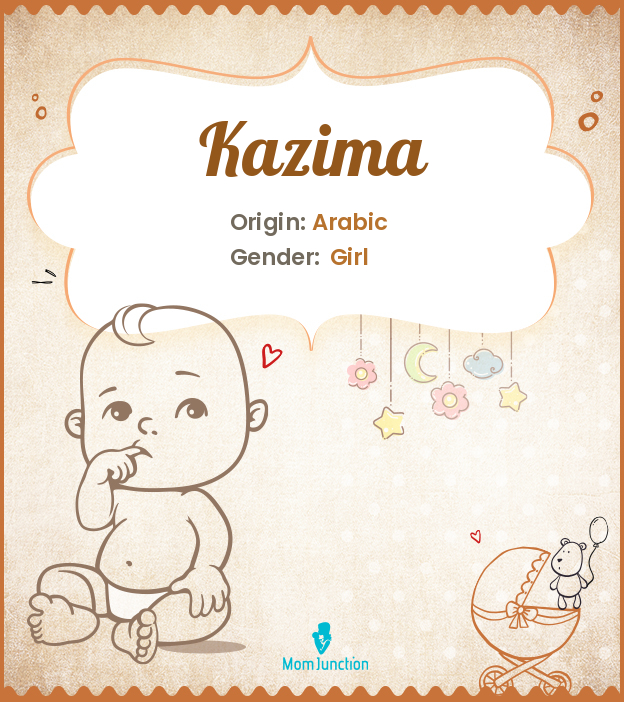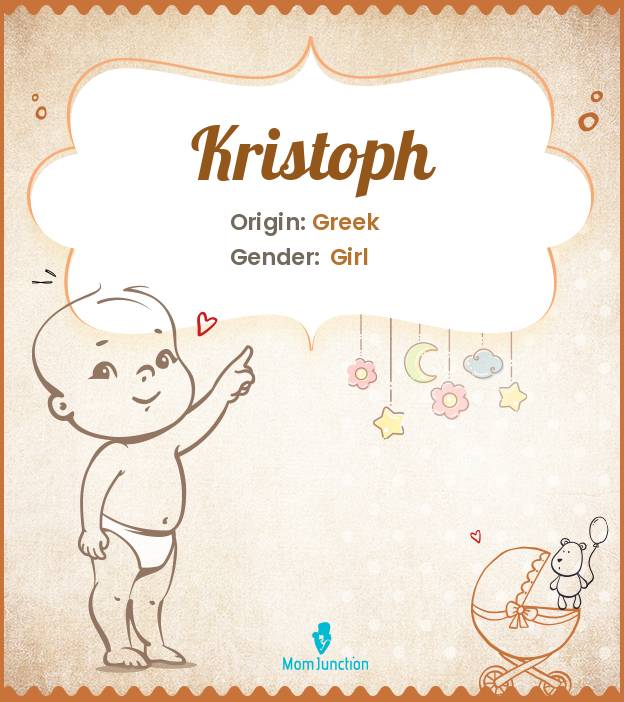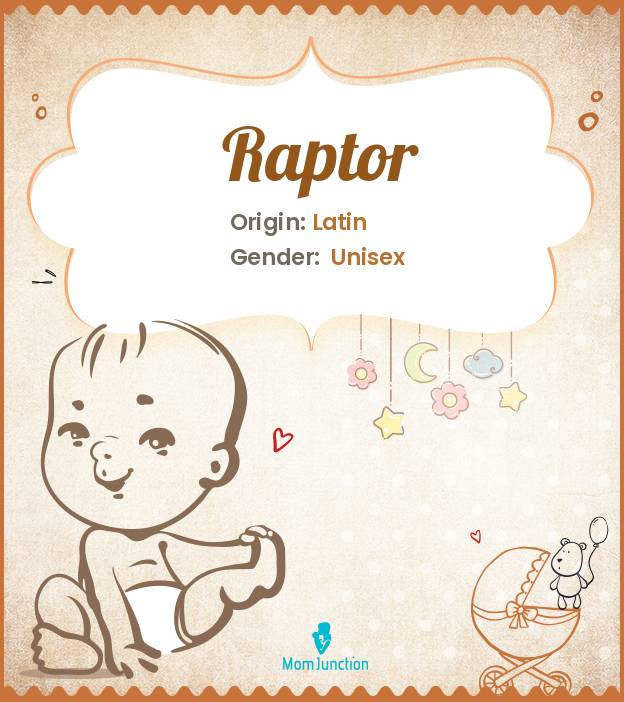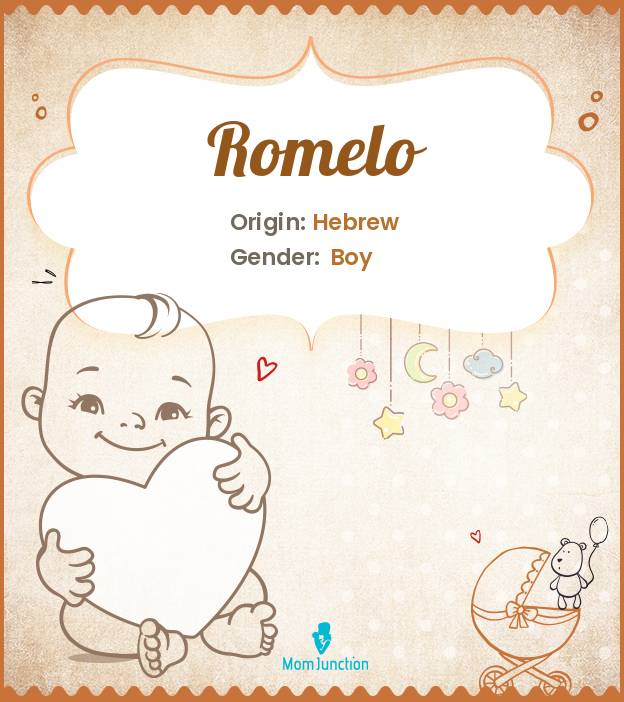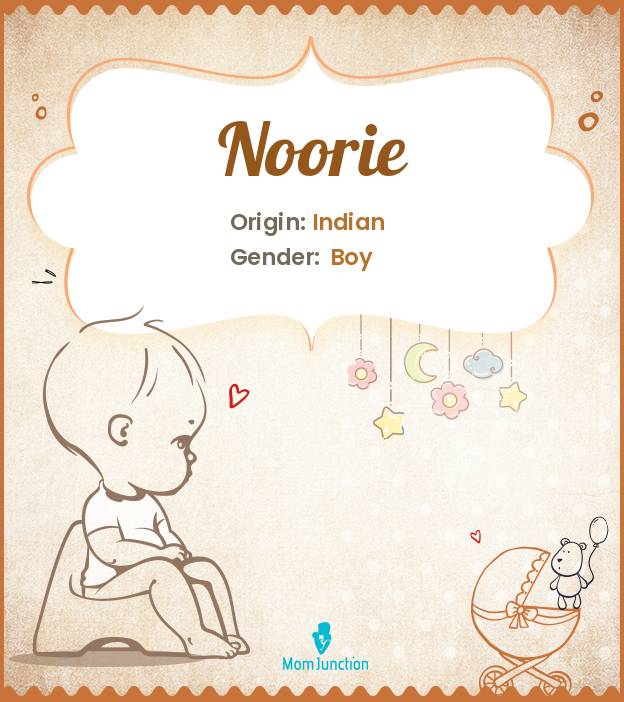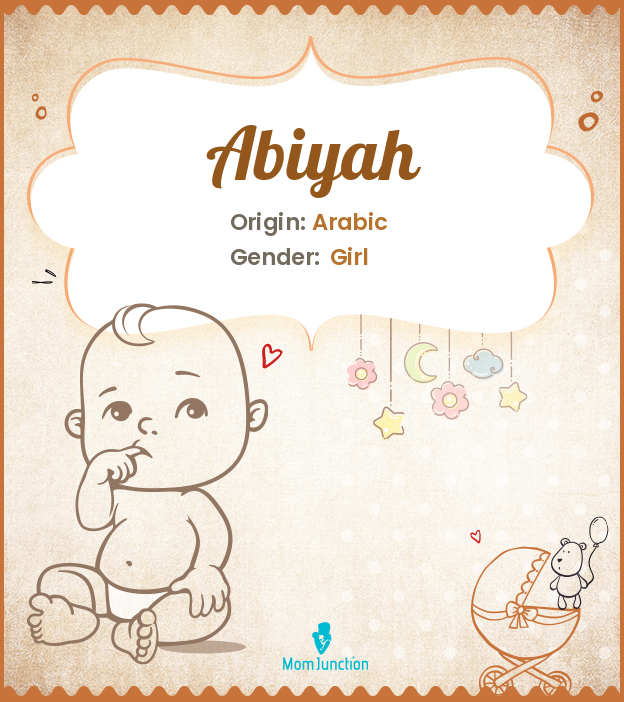455 Japanese Baby Unisex Names With Meanings
Let your baby blossom with a name that honors tradition, resilience, and hard work.
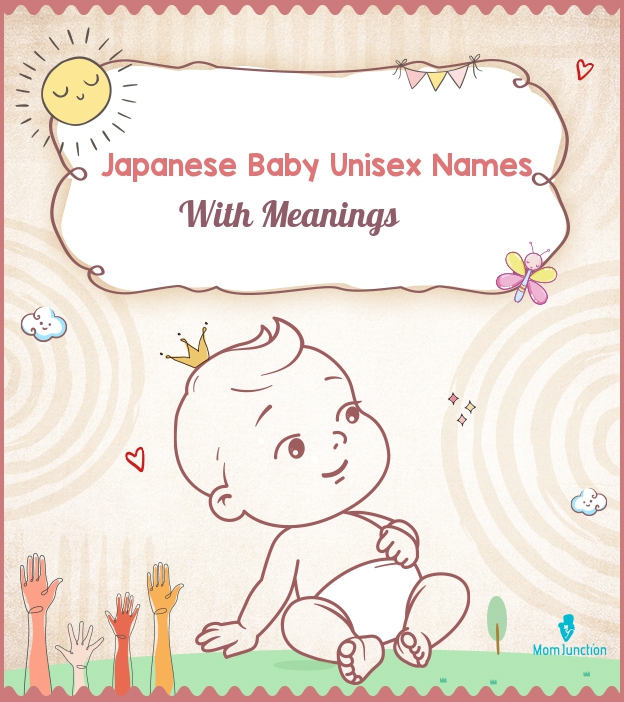
Illustration: MomJunction Design Team
Naming customs in Japan have a rich historical, cultural, and traditional significance, with each name carrying layers of meaning and reflecting societal values.
Traditionally, Japanese names consist of kanji characters, logographic symbols borrowed from Chinese characters. These characters carry specific meanings and can be combined to form unique names. Japanese names often have profound meanings rooted in nature, seasons, virtues, or desirable qualities.
In Japan, it is common for names to be written in hiragana, which is a syllabary used in the Japanese writing system. Unlike alphabets, hiragana characters represent syllables rather than individual sounds or whole words. Additionally, for foreign names, katakana, another syllabary in Japanese, may be used. The naming convention in Japan follows the East Asian style, where the family name is placed before the given name. For instance, in the name Suzuki Hiroshi, "Suzuki" is the family name followed by "Hiroshi," the given name (1).
The names given in Japan carry immense cultural importance, serving as a reflection of a person's character and values. Each name embodies ancient Japanese beliefs, as well as artistic and creative practices like gardening, architecture, haiku poetry, and the noble traditions of the Samurai Bushido Code. Furthermore, these names often provide insights into a person's birth order, exemplified by names like 'Taro,' which signifies the status of being the first-born male.
The Enamdict dictionary, a comprehensive compilation of Japanese Proper Names, documents a vast collection of over 138,000 Japanese family names. Similar to many countries, certain family names exhibit higher concentrations in specific regions within Japan. For instance, names like Chinen (知念) and Shimabukuro (島袋) are frequently encountered in Okinawa, but their prevalence in other parts of Japan is comparatively lower (1).
Naming practices in Japan encompass a blend of historical, cultural, and traditional elements. Whether traditional or contemporary, the process of naming boys and girls in Japan remains an essential aspect of Japanese culture, reflecting values, connections, and aspirations within society.
| Name | Gender | Meaning | |
|---|---|---|---|
|
|
Warrior or loyal warrior | ||
|
|
Harmony or peaceful spirit | ||
|
|
Strawberry or one with a cheerful spirit | ||
|
|
First flower | ||
|
|
First son, first born | ||
|
|
Fish; Squid | ||
|
|
Death; To live | ||
|
|
To light up; Illuminate | ||
|
|
Present; Now; Short for Immaculada; Immaculate | ||
|
|
Exotic, vibrant, porcelain | ||
|
|
Work; Labor | ||
|
|
Faith | ||
|
|
Finnish goddess of fertility and agriculture | ||
|
|
Prayer or wish | ||
|
|
Dog | ||
|
|
Fragrant weaving; Weaving with colors | ||
|
|
Peaceful | ||
|
|
Japanese alphabet, first step | ||
|
|
Gift from God | ||
|
|
Gracious, strong, determined | ||
|
|
Joyful; Beautiful; Peace | ||
|
|
God is my salvation | ||
|
|
Word; Saying | ||
|
|
Spring, fountain | ||
|
|
Will rise; Will establish | ||
|
|
One who is energetic; Drive oriented; Ambition | ||
|
|
Ancient deity; Celestial being | ||
|
|
God is gracious | ||
|
|
Dove | ||
|
|
Justice of the peace; Silver | ||
|
|
The brave one | ||
|
|
Rain or shower | ||
|
|
Creative; Unique | ||
|
|
The sea | ||
|
|
Maple | ||
|
|
Maple; Maple leaf | ||
|
|
Fiery; Intense; Passionate | ||
|
|
Divine entertainment; Ceremonial dance | ||
|
|
Flower child | ||
|
|
Strong; Fearless; Assertive | ||
|
|
Round; Lumpy; Maple; Beloved; Darling; Fighter; Warrior | ||
|
|
Strength; Power; Ruler | ||
|
|
Ocean-related; Sea-related | ||
|
|
Inspiring leader or warrior | ||
|
|
Strong; Powerful; Leader | ||
|
|
Sea; Ocean village | ||
|
|
Navy; Marine | ||
|
|
Victorious warrior or triumphant soldier | ||
|
|
Healthy; Alive; Living | ||
|
|
Strength, determination, leadership | ||
|
|
Great leader; Powerful ruler | ||
|
|
Continuous improvement | ||
|
|
Restructured; Reconfigured | ||
|
|
Scarecrow or scarecrow ninja | ||
|
|
Strong, Powerful, and Resolute | ||
|
|
Turtle child or child of the turtle | ||
|
|
Superior child or superior beauty | ||
|
|
Playing music | ||
|
|
Seedling; Fruitful | ||
|
|
Central or pivotal | ||
|
|
Bird | ||
|
|
One's place; One's homeland | ||
|
|
Beautiful truth | ||
|
|
Mysterious essence | ||
|
|
Fragant | ||
|
|
Noble; Strong; Brave | ||
|
|
Fragrant | ||
|
|
River; Sand | ||
|
|
Strong; Leader; Enlightened | ||
|
|
Strong and powerful | ||
|
|
Victory; Win | ||
|
|
Win: To overcome | ||
|
|
Cute and lovely | ||
|
|
Adorable; Cute | ||
|
|
Graceful, delicate, enchanting | ||
|
|
Unique and mysterious | ||
|
|
Wind | ||
|
|
Windy; Wind | ||
|
|
Beautiful; Harmony | ||
|
|
Harmony or peaceful | ||
|
|
Type of tree; Forest | ||
|
|
Respectful, honorable, polite | ||
|
|
Arrow or blessed child | ||
|
|
Rare; Unique; Pprecious | ||
|
|
Swordsmanship, strong, warrior | ||
|
|
Strong, spirited, courageous | ||
|
|
Habitational name from farms in Finland; Variant of Keronen | ||
|
|
To call; To shout | ||
|
|
Lucky; Blessed | ||
|
|
Curly hair | ||
|
|
Blooming chrysanthemum | ||
|
|
Strength; Warrior; Protector | ||
|
|
Unrestricted; Without limits | ||
|
|
Tree village | ||
|
|
Golden | ||
|
|
Brave; Majestic; Strong | ||
|
|
Kitty; Little cat | ||
|
|
Hopeful, determined, strong | ||
|
|
Purity or pure | ||
|
|
Pure beauty | ||
Discover this diverse, exquisite, and thoughtfully curated list of Japanese unisex baby names with meanings, each carrying immaculate cultural significance. These names serve as timeless expressions of the country’s undying spirit and emphasize the connection between all genders. In an evolving world embracing flexibility and individuality, these unisex names allow parents to give their children a unique yet inclusive identity. We hope that this collection acts as a helpful guide for you to make an informed choice for your little one.
Infographic: Japanese Unisex Baby Names For Modern Parents
Japanese names usually take inspiration from nature, virtues, different seasons, and the desirable qualities in people. The Kanji characters are of profound significance in Japanese names and can be combined in different sequences to give rise to unique names. Discover the beauty of Japanese unisex baby names with the help of this enchanting and informative infographic. Breaking free from the traditional gender naming patterns, these unisex names provide interesting options to parents.
Illustration: Momjunction Design Team
Frequently Asked Questions
1. Are there any Japanese unisex names related to history?
Names like Akira, meaning ‘light,’ ‘bright,’ or ‘clear,’ is a unisex name, and it is associated with one of Japan’s renowned filmmakers Akira Kurosawa. Katsumi is another unisex Japanese name that means ‘overcome,’ ‘victory,’ or ‘beautiful.’ It can be associated with Katsumi Nomizu, a Japanese-American mathematician famous for his work in differential geometry.
2. How does using Japanese unisex names set children apart from their peers?
Japanese unisex names can set apart your child from their peers because generally, Japanese names have certain suffixes attached to them at the end of the name, like ‘ro,’ ‘ta,’ or ‘ichi,’ are associated with male names, whereas suffixes like ‘ko,’ ‘mi,’ or ‘ka,’ are commonly seen with female names.
3. Are there any special rules or guidelines for choosing Japanese Baby Unisex Names?
Japanese unisex names most likely follow the same rules and guidelines when picking a name for a baby. The arrangement of the name would be a family name followed by the given name. The family name is usually patrilineal and comes before the given name. The given name is chosen at birth and is generally written in the kanji script. However, there are certain cases where names can be written using the phonetic syllabary of hiragana or katakana. It is more common for women to write their names in the hiragana syllabary than men. Japanese names tend not to include any middle names. It is also essential to consider the meaning of the name so that the family accepts it. Pronunciation is another important aspect, as well as spellings since Japanese names can have multiple spellings to their names (1).
References:
- Understanding Japanese Names;
https://www.familysearch.org/en/blog/all-about-japanese-names
Look Up For Many More Names
Do you have a name in mind and want to know more about it? Or want to find names belonging to a particular origin, religion, or having a specific meaning? Use our search tool below to explore more baby names with different combinations.




